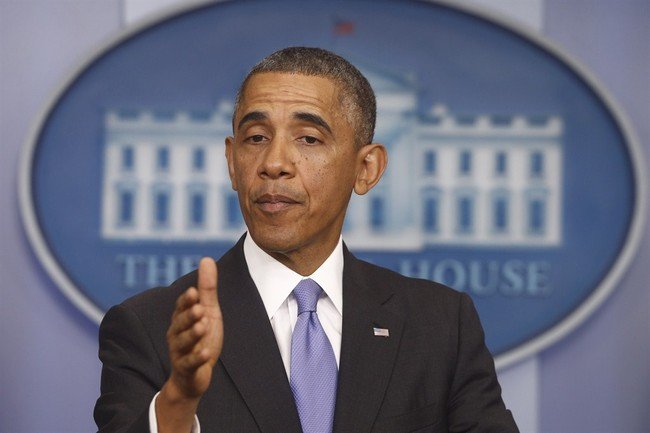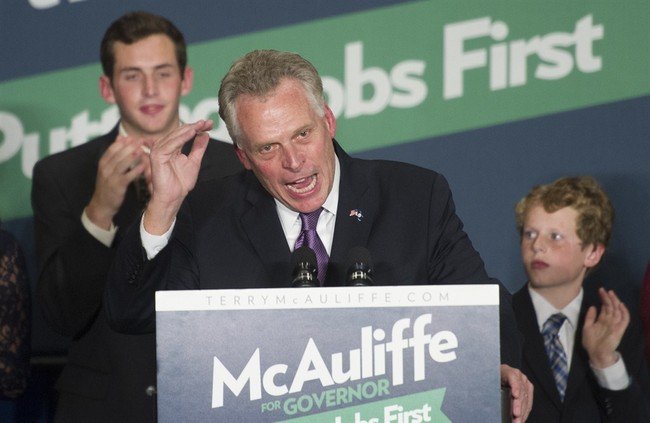Last week, many conservatives in both politics and the media seemed to be reaching their wits’ end as they tried to explain why some in the Republican establishment showed no interest in rolling back the Affordable Care Act, commonly known as “Obamacare.” Pathetic op-eds and op-eds in high-profile media outlets have weighed in on the issue throughout the week, and conservative radio and TV hosts have openly speculated about the GOP’s alleged death wish on the matter. There are valid reasons for conservative concern on this issue. First, the rollout of Obamacare was simply a disaster. It was much worse than anyone could have imagined, and when this mistake is fully implemented, these are the people who will soon be responsible for one-sixth of the country’s economy and making literally life-and-death decisions. Secondly, the public, which has always been ambivalent towards the law (see the contradictory nature of the 2010 and 2012 elections), now sees the issue more clearly and is rebelling as a result. Third, the GOP has something material to utilize against a slippery politician who constantly campaigns but hands over the heated potato of his failures to others who willingly accept them. Still, there are significant elements within the Republican Party that recommend rolling back and, yes, accepting Obamacare. Why?
The dynamics of GOP politics today actually reflect an internal battle going back to 1938. During that fateful year, the Republican Party split into two distinct and controversial factions. The GOP was at its worst historical moment after the electoral floggings of 1932, ’34, and ’36. In 1937, the United States Senate had only twenty Republican members. National Republicans had to develop some kind of strategy to stay relevant. The first group offering the plan consisted mostly of GOP officials from the Northeast quadrant of the country, as well as a smaller contingent from the upper Midwest. Republicans, led by Thomas Dewey, the dapper governor of New York, advised the Party to accept Democrats and the New Deal in principle but emphasize Republican managerial competence and administrative efficiency. The Deweyite approach (sometimes called “me too” republicanism) can be summed up this way: if you can’t beat them, join them and say you can do better than anyone else.
The other GOP faction, led by Ohio senator and the president’s son Robert A. Taft, has decided to fight. Taft, elected to the Senate during the recapture of the Republican Party in 1938, famously declared, “It is the duty of the opposing party to oppose it,” and led a vigorous, though not entirely successful, defense against the expansion of the New Deal and statist agenda until his death in 1953. . Every Republican internal battle in subsequent generations has been a variation on the same theme. The Goldwater-Rockefeller feud in the 1960s, the Reaganite fight against the Nixon-Ford-Dole “moderate” crowd in the 1970s, and the public feud between social and economic conservatives in the early 1990s were dress rehearsals for the current discontent. The novel paradigm pitting the Tea Party against the Republican establishment relies largely on renewed hostilities between factions that have often worked harder together than against Democrats.
Today, we generally think of Republicans as the “conservative” party, characterized by free enterprise, constrained government, and classic values. But in reality, some Republicans have always been comfortable with the welfare state. Some neoconservatives have always believed that a modest welfare state, properly constructed, would serve as a needed bulwark against radicalism. Most conservatives do not share this confident view, but many so-called “moderate” Republicans accept the idea of an overarching social safety net and emphasize, like their GOP forebears in the 1940s, the importance of cost control and administrative efficiency. They see no reason to fight a battle to repeal Obamacare.
In addition to the Republican establishment’s acceptance of the welfare state, we have the ongoing problem of disconnection between Main Street USA and the Washington bubble. Establishment Republicans are generally entrenched incumbents who, barring a political earthquake, will stay in office as long as they want to keep it. These people are very comfortable with their status and see themselves not as “representatives” of their districts and their inhabitants, but as “stewards” of the community who are obliged to exercise their own judgment in political matters. They do not see themselves as representatives of their voters, but as members of a higher political class. Most of them do not plan to return to life in their neighborhoods after withdrawing from politics. They maintain cordial relations with members of the other Side, eating, drinking and meeting with them regularly. It is understood that during the elections they will have to say a few words against the Democrats, but it is just a matter of game and nothing personal. These establishment Republicans are very afraid of party animals, assuming that these rowdy upstarts will be challenged and likely defeated. This will ruin the good life that Republicans have spent several decades building.
Finally, and most disturbingly, some Republicans are willing to allow this law to remain in place, no matter how harmful it is to the economy and the nation, for the mere fact that they are elated to see health care taken off the table during an election year. Democrats have used high and rising health care costs as a handy cudgel to hit the GOP every election cycle. Never mind that universal insurance and Democrat fiefdoms like the FDA are a large part of the problem. Establishment Republicans believe Obamacare erases health care as an issue and gives the party a pass for the transgression of offering little on the issue itself. This explains why we are now seeing the spectacle of some Republicans working to “reach across the aisle” to support save this monstrosity, even though they should claim no responsibility or ownership for Obama’s madness.
We won’t know how this fight will play out for many months. Yet once again we see that Republicans never fully understand the nature of politics, the stakes and the costs of failure. Karl Rove and others argued that the party should back off and let Obamacare collapse under its own weight. Do they really think that a President who has achieved nothing will give up this Holy Grail without a fight? We could end the institutionalization of terrible laws that cost trillions of dollars, do not improve American health care, and result in fewer citizens being covered than before. Establishment Republicans can then congratulate themselves on avoiding another fight they should have had.


